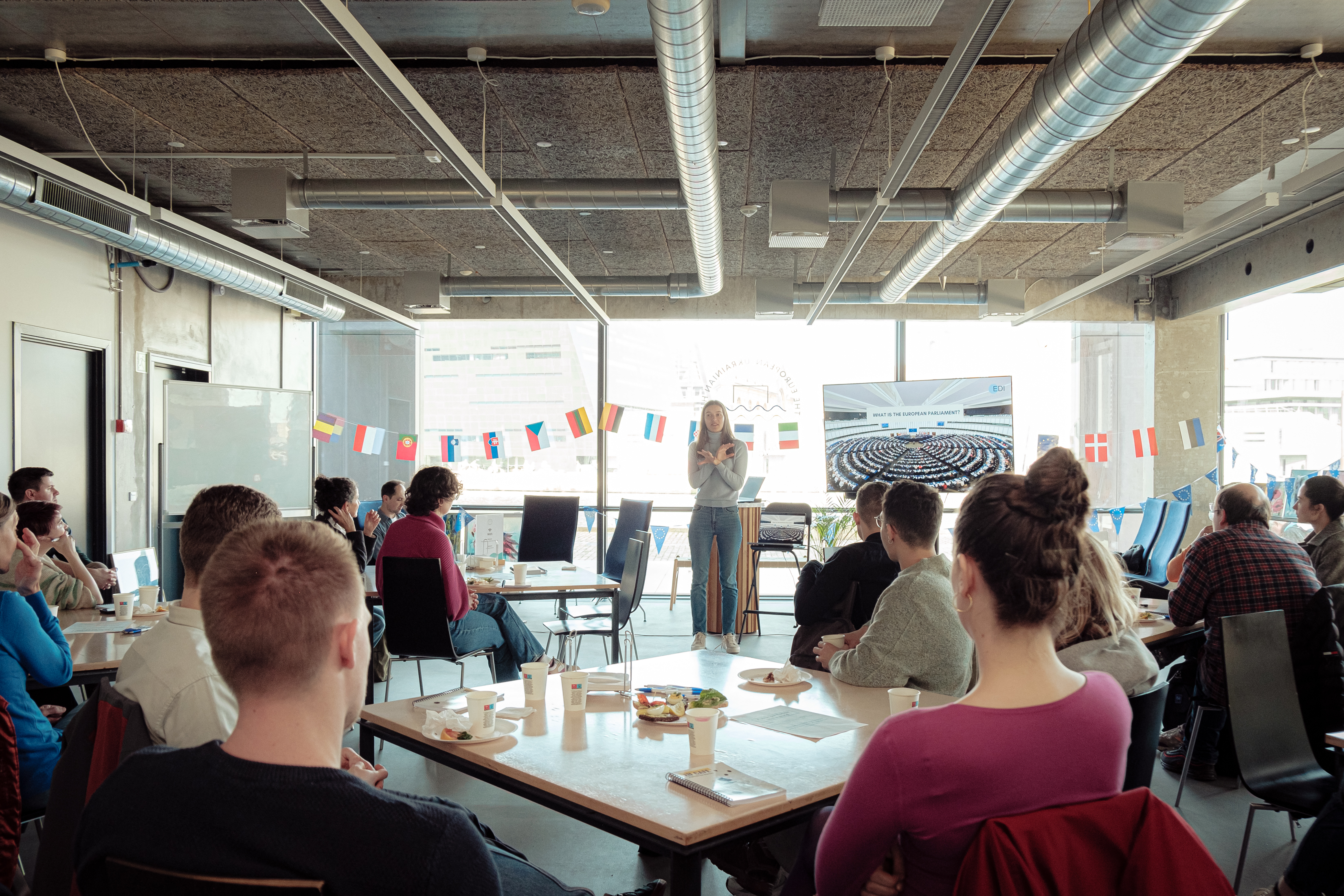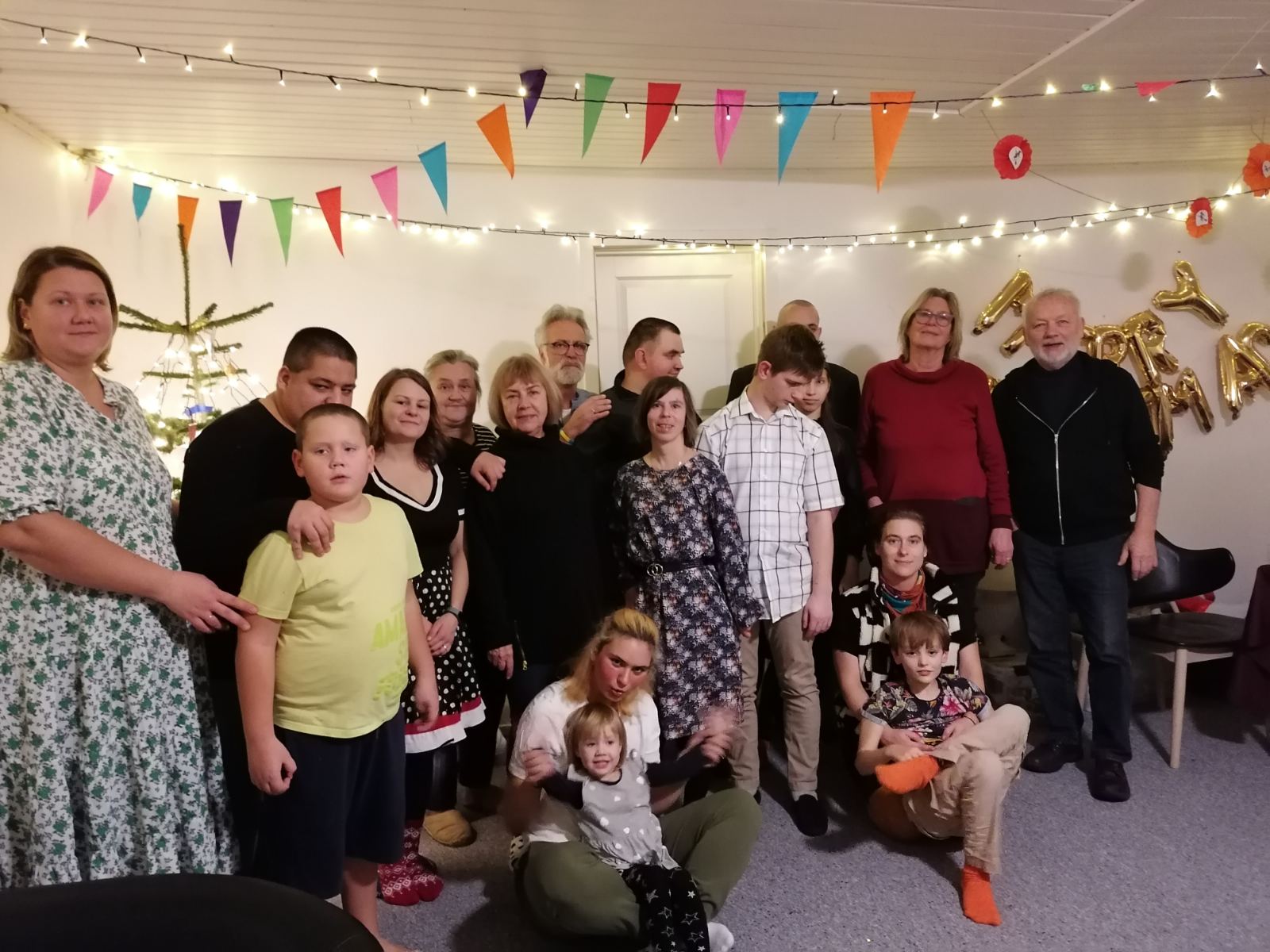Manifesto
In an era where diversity is our greatest strength and inclusion our most noble pursuit, we stand at the forefront of a transformative movement: 'A More Inclusive Society'; AMIS embodies the vision of a future where every voice is heard, every culture celebrated, and every individual empowered.
At the heart of 'A More Inclusive Society' (AMIS) lies a dual commitment that propels us towards a future where inclusivity knows no borders.
Our first leg
Our first leg stands firmly in Denmark, a beacon of hope for internationals who seek to weave their narratives into the Danish tapestry. AMIS is dedicated to opening doors, making decision-making tables accessible, and ensuring that the cultural diversity internationals bring is not just welcomed but celebrated.
We envision a Denmark where every international feels at home, understood, and integral to the societal fabric, bridging gaps and fostering a mutual exchange of values and traditions.
Our second leg
Simultaneously, our second leg strides confidently onto the global stage, focusing on humanity projects that champion the rights and participation of minorities, particularly those with neurodiversity and disabilities. From local communities in Denmark to the far reaches of the globe, AMIS is a voice for the voiceless, advocating for empowerment, equality, and access to opportunities. Through hands-on initiatives and relentless advocacy, we aim to dis-mantle barriers and create a world where everyone, regardless of their background or abilities, can fully participate in and contribute to society.
Together, these two legs carry us forward, embodying our belief in a world where inclusivity is not just an ideal but a reality. Join us as we navigate the complexities of creating a more inclusive society, both within the vibrant, diverse landscape of Denmark and beyond, into the broader expanse of our interconnected world. AMIS stands as a testament to what we can achieve when we embrace diversity, foster inclusion, and work tirelessly to ensure that every individual has the opportunity to thrive.
Diversity is the Future
The future of Denmark lies in its diversity. By 2030, 20% of the population will be without Danish citizenship and 35% will have another ethnic background. Mixed families are becoming a common occurrence and children with 3-4 mother tongues are rather the norm, than the exception.
Danish society is at the intersection between homogenous, old Denmark and diverse, new Denmark. As we are going through the transition years, we are seeing different symptoms of resistance to change. An increase in discrimination cases, a targeting of internationals via legislation, a disproportionate influence for the far-right parties within the last decade, and the list keeps going on. Regrettably, numerous families of internationals are bearing the brunt of the transition, finding themselves in a predicament where they are either facing isolation or clustering together with others in similar situations.
At AMIS, we believe there is a way to navigate towards the new Denmark, without too many sacrifices on the way: The way of inclusion.
Danes and internationals, we are walking together to the future of Denmark and it's time we recognize that. It's time to lift the veil and see that we have been walking side-by-side for some time already.
The Right to Take Part
In the heart of Europe's values lies a stead-fast commitment to fostering an inclusive society where every individual is valued, respected, and given the opportunity to thrive. This ethos is particularly vital for people at risk of being segregated from their communities, including those living with disabilities.
At the core of Europe's approach to inclusion and the rights of people with disabilities is the belief that diversity enriches our communities. Every individual brings a unique perspective and set of skills to the table, contributing to a more vibrant, innovative, and cohesive society.
Despite progress in many areas, segregation and discrimination remain deeply ingrained in the fabric of everyday life in most countries. Across the globe, individuals and communities continue to face exclusion based on race, gender, disability, sexual orientation, religion, or socioeconomic status. These systemic barriers not only perpetuate inequality but also undermine the fundamental principles of justice and human dignity.
Aware of these challenges, AMIS stands as a beacon of hope and action. We are committed to tirelessly fighting against the forces of segregation and discrimination. Through advocacy, education, and direct support, AMIS works to dismantle these barriers: The way of inclusion.
The Way of Inclusion
The way of inclusion means that internationals should be “allowed” to preserve their heritage, be open to adopt new traditions and customs and choose to belong to Denmark. To support Denmark’s voyage to the future.
One way or another, Denmark as society will have to embrace its new identity as a country of cultural diversity. The question is how we get there and how? Who will pay the price? Should conflict be the answer? We believe not. There is another way, a fruitful way: The inclusion way. After all, we all love and are part of Denmark. It's just that we look different, we may speak differently, and we celebrate life differently. But together we are the people of Denmark.
AMIS. A More Inclusive Society will work for these 10 goals about diversity.
The Right to Take Part
The way of inclusion means promoting a world where everyone is afforded the respect, rights, and opportunities they deserve. Together, we can build a more inclusive, equitable society that recognizes the value and potential of every individual.
AMIS aids marginalized people and groups across numerous countries, with a focused presence in former Soviet societies, Europe, and the Nordic regions., promoting practical inclusion through hands-on support and collaboration. There is a way, a fruitful way: The inclusion way.
AMIS for more than 30 years have implemented projects designed to empower those “on the edges of society”, ensuring they have the tools and support needed to participate fully and equally.
AMIS. A More Inclusive Society will work for these 10 goals about the right to take part.
1.Open civic society to internationals: Encourage participation in associations to enrich community life.
2.Embrace and celebrate diversity in Denmark: Actively promote cultural diversity as a source of national pride.
3.Ensure internationals have seats at decision-making tables: Increase their activity in political parties for diverse perspectives.
4.Decipher the Danish societal codex for internationals: Make Danish values and customs more accessible to foster understanding.
5. Safeguard the heritage of internationals: Support native language learning among international children born in Denmark.
6. Promote the concept of a multi-layered identity: Encourage identifying as Danish, International, European, and Human simultaneously.
7. End discrimination in Denmark: Guarantee equal opportunities for all, regardless of background.
8. Advocate for "walking together" on the Danish path: Make inclusion the cornerstone of the 2030s.
9. Empower internationals with knowledge of their rights and responsibilities: Ensure unobstructed access to this information.
10. Build bridges between Danish and international communities: Unite all under a shared identity and fate as People of Denmark.
1.Empowerment through Participation: Actively involve marginalized groups. Empowerment comes from giving people a voice and a stake in their own inclusion journey.
2. Inclusion advocacy seeks to dismantle barriers of all kinds that prevent people from enjoying equal access and opportunities.
3. Focus on creating opportunities for skill development, education, and employment that directly improve individuals’ lives.
4. Accessibility and Usability: Ensure that all initiatives are accessible to everyone, regardless of their physical or cognitive abilities.
5. Collaborative Partnerships: Work in partnership with other organizations, government agencies, and stakeholders to pool resources, knowledge, and expertise.
6. Cultural Competence: Develop a deep understanding of the cultures, languages, and backgrounds of the communities you work with.
7. Hands-on, Practical Projects: Design projects that offer tangible benefits and practical solutions to the challenges faced by marginalized groups.
8. Engage community leaders, local organizations, and the general public in fostering an inclusive environment.
9.Encourage innovation in tackling inclusion challenges.
10. Maintain transparency in operations and be accountable to the communities you serve. Regularly evaluate and report on your projects’ impacts to ensure they are meeting their goals.
AMIS also works based on the UN's SDGs and environmental, social, and economic sustainability
AMIS arbejder også ud fra FN’s Verdensmål og miljømæssig, social og økonomisk bæredygtighed





